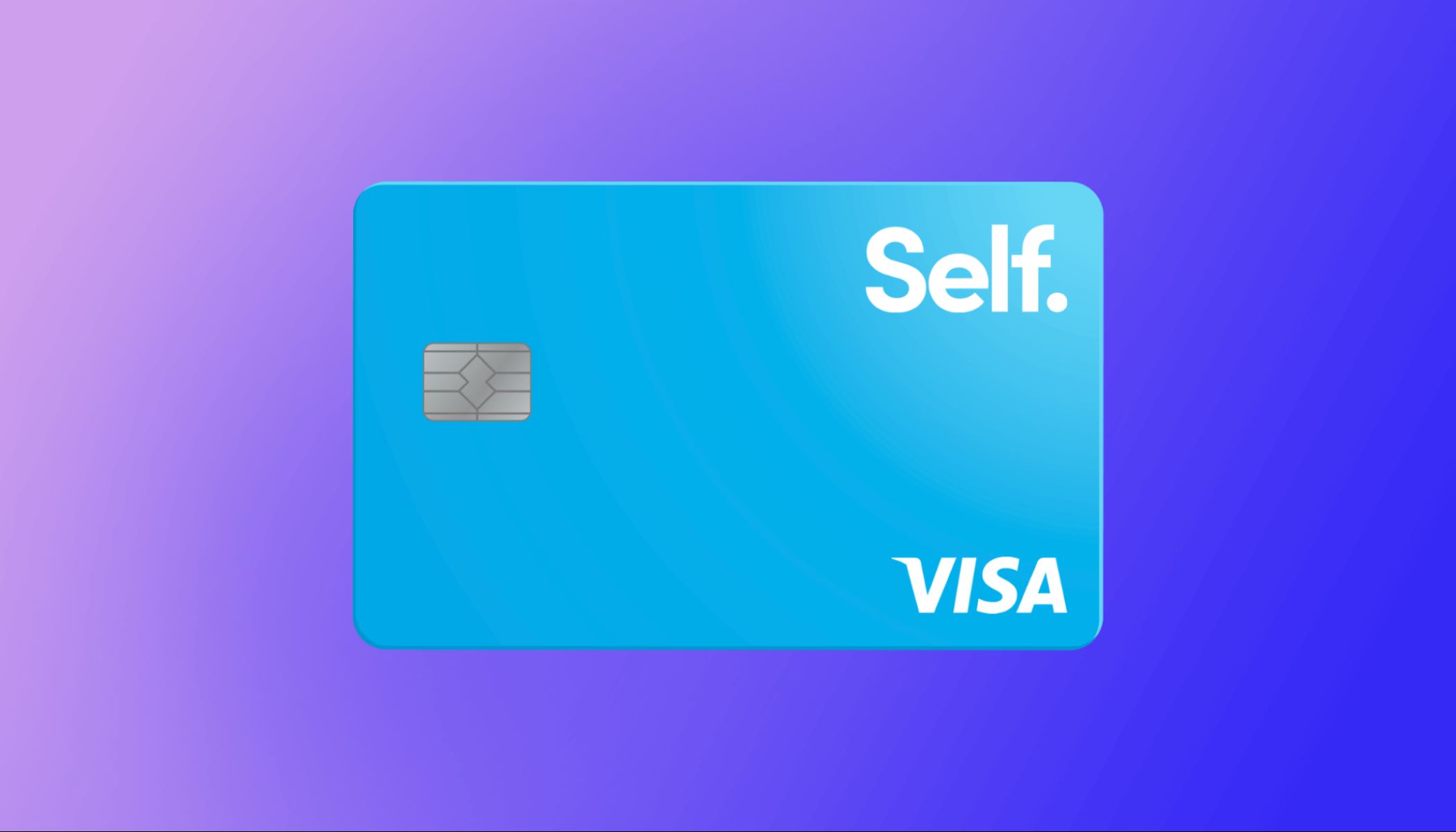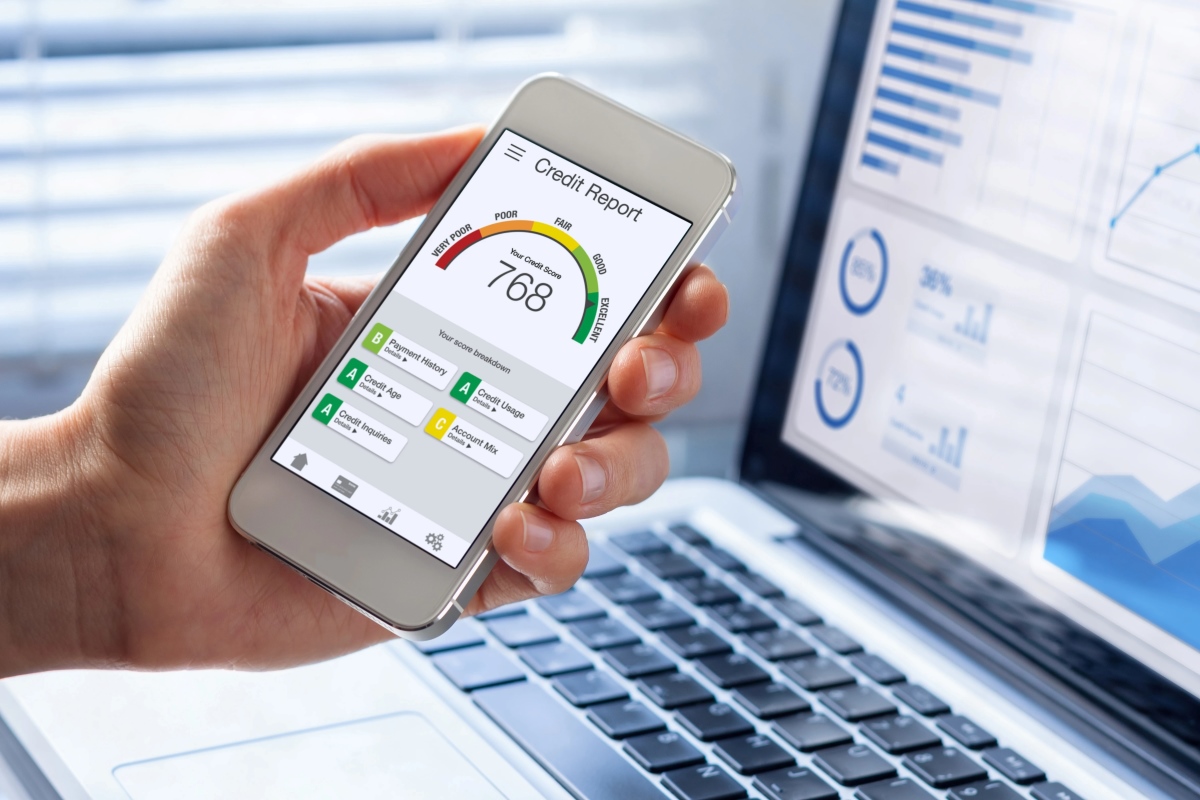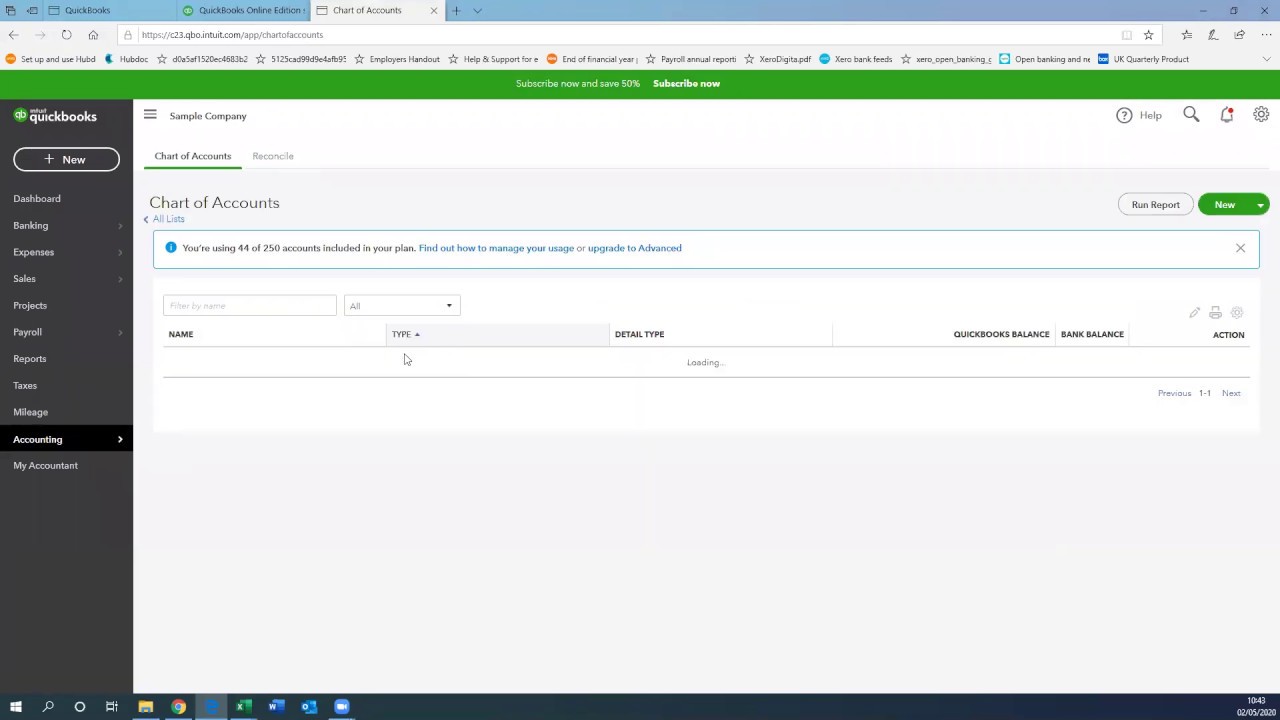Home>Finance>How Long For New Credit Card To Show On Credit Report


Finance
How Long For New Credit Card To Show On Credit Report
Modified: December 29, 2023
Learn how long it takes for a new credit card to appear on your credit report and impact your finances. Stay informed about the timeline and credit implications.
(Many of the links in this article redirect to a specific reviewed product. Your purchase of these products through affiliate links helps to generate commission for LiveWell, at no extra cost. Learn more)
Table of Contents
Introduction
Applying for a new credit card can be an exciting moment, as it opens up opportunities for financial flexibility and rewards. However, it’s crucial to understand that obtaining a new credit card also has implications for your credit report. Your credit report is a comprehensive record of your credit history, and it plays a significant role in determining your creditworthiness.
In this article, we will delve into the process of how long it typically takes for a new credit card to show up on your credit report. Whether you’re eager to see your new card reflected on your report or concerned about potential delays, understanding the timeline can provide you with essential insights.
To fully grasp the timeline, we’ll first explore what credit reports are and how credit card information is reported. Then, we’ll examine the factors that can affect the time it takes for a new credit card to appear on your credit report. Finally, we’ll discuss the typical timeframe you can expect and the importance of regularly monitoring your credit report.
So, let’s dive into the world of credit reports and understand how they relate to your new credit card!
Understanding Credit Reports
Before we delve into the process of how long it takes for a new credit card to show up on your credit report, let’s first understand what credit reports are and their significance in the world of finance.
A credit report is a detailed record of your borrowing and repayment history. It provides a snapshot of your creditworthiness and is used by lenders, landlords, and others to assess your financial reliability. Credit reports are compiled by credit bureaus, such as Experian, Equifax, and TransUnion, which gather information from various sources, including lenders, banks, credit card companies, and public records.
Your credit report includes information on your existing credit accounts, such as credit cards, mortgages, and loans, as well as your payment history, outstanding debts, and any legal actions or delinquencies. It also includes personal information, such as your name, address, and social security number, to help verify your identity.
The three main credit reporting bureaus collect and maintain separate credit reports, which may result in slight variations in the information they contain. It’s important to regularly review your credit reports from all three bureaus to ensure accuracy and identify any potential errors or discrepancies.
Now that we have an understanding of credit reports, let’s explore how the information about your credit card is reported to these bureaus, and how that impacts the timeline for it to appear on your credit report.
How Credit Card Information is Reported
When you open a new credit card account, the credit card issuer will typically report the details of your account to the credit bureaus. This reporting process involves the transmission of information regarding your credit card, including your account number, credit limit, payment history, and balance.
The credit card issuer usually reports this information to the credit bureaus on a monthly basis. They provide updates on factors such as your payment history, outstanding balances, and credit utilization ratio. This allows the credit bureaus to accurately reflect your credit card activity and history on your credit report.
It’s worth noting that credit card issuers are not required by law to report your credit card information to the credit bureaus. However, most major card issuers do report this information as a standard practice. By reporting your credit card details, they help create a comprehensive credit profile that lenders and other credit providers can reference when evaluating your creditworthiness.
It’s important to keep in mind that the information reported to the credit bureaus may not be instantaneously updated on your credit report. There can be a lag between the time when you open a new credit card account and when it is reflected on your credit report. The specific timing depends on several factors, which we will explore in the next section.
Factors Affecting the Time it Takes for a New Credit Card to Show on a Credit Report
While it would be ideal for a new credit card to appear on your credit report immediately after you open the account, there are several factors that can affect the timeline. Here are some key factors that can influence how long it takes for your new credit card to show on your credit report:
- Credit card issuer reporting practices: Each credit card issuer has its own reporting schedule. Some issuers report new accounts to the credit bureaus soon after they are opened, while others may delay reporting for several weeks or even a month. It’s worth checking with your credit card issuer to understand their specific reporting timeline.
- Credit bureau processing time: After the credit card issuer reports your new account information, the credit bureaus need to process and update it on your credit report. This can take some time, as they receive a vast amount of data from various sources. Typically, it can take a few days to several weeks for the credit bureaus to incorporate the new information into your credit report.
- Timing of your credit card statement: The reporting of your credit card information is often based on your billing cycle. If you open a new credit card account shortly before your statement closing date, it may not be reflected on the first statement. Instead, it may be included in the subsequent billing cycle. This delay is due to the timing of when the credit card issuer provides the data to the credit bureaus.
- Credit bureau update frequency: Credit bureaus update credit reports at different intervals. Some update reports on a monthly basis, while others may update more frequently. This means that even if your credit card issuer reports your new account promptly, it may not be immediately reflected on your credit report if the bureau’s update cycle is yet to occur.
It’s important to note that these factors can vary depending on the specific circumstances and the policies of your credit card issuer and the credit bureaus. Though there may be a delay in your new credit card appearing on your credit report, rest assured that it will eventually be updated.
Next, we’ll explore the typical timeframe for a new credit card to appear on your credit report.
Typical Timeframe for a New Credit Card to Appear on a Credit Report
While the exact timeline can vary based on the factors mentioned earlier, there is a general timeframe within which you can expect a new credit card to appear on your credit report.
In most cases, it takes about 30 to 45 days for a new credit card to show up on your credit report. This duration includes the time it takes for the credit card issuer to report the information to the credit bureaus and for the bureaus to update their records.
Typically, you can expect the credit card issuer to report your new account information to the credit bureaus within the first month of opening the account. It may take a couple of weeks for the credit bureaus to process and update the information on your credit report.
It’s important to keep in mind that this is a general timeframe, and there may be variations. Some credit card issuers may report the information sooner, while others may take longer. Additionally, the credit bureau’s update cycle can affect when your new credit card appears on your report.
If more than 45 days have passed, and you still do not see your new credit card listed on your credit report, it may be a good idea to contact the credit card issuer to inquire about the reporting status. There could be a potential issue or delay that needs to be addressed.
Remember, regularly checking your credit report is essential to ensure accuracy and detect any discrepancies or errors. By monitoring your credit report, you can keep track of when your new credit card appears and verify that all the information is correct.
Now that we understand the typical timeframe for a new credit card to appear on a credit report, let’s explore why it is important to monitor your credit report regularly.
Importance of Monitoring Your Credit Report Regularly
Regularly monitoring your credit report is crucial for several reasons. Here’s why it’s important to stay vigilant and keep an eye on your credit report:
- Identity theft detection: Monitoring your credit report allows you to detect any signs of unauthorized activity or identity theft. By reviewing your report regularly, you can spot any unfamiliar accounts, inquiries, or suspicious transactions that could indicate fraudulent activity. The sooner you catch and report these issues, the quicker you can mitigate potential damage to your credit and financial well-being.
- Error identification and correction: Credit report errors can occur, such as inaccurate account information, incorrect payment statuses, or outdated personal details. Regularly checking your credit report enables you to identify any mistakes and take the necessary steps to rectify them. Disputing and resolving errors promptly can help maintain the accuracy of your credit report and prevent any negative impact on your credit score.
- Credit monitoring and improvement: Monitoring your credit report allows you to keep track of your overall credit health. You can review your payment history, credit utilization, and other factors that contribute to your credit score. By regularly assessing your credit report, you can identify areas that need improvement and make necessary changes to enhance your creditworthiness over time.
- Financial planning and decision-making: Your credit report provides valuable insights into your financial situation. Lenders, landlords, and other organizations rely on this information to make decisions about extending credit, approving rental applications, or offering favorable terms. By monitoring your credit report, you can ensure that the information presented is accurate and reflects your creditworthiness. This can help you make informed financial decisions and plan for the future.
Monitoring your credit report has become easier than ever, thanks to online access and services provided by credit bureaus and other organizations. Take advantage of the opportunity to review your credit report regularly and take control of your financial well-being.
Remember, checking your credit report for your new credit card is just one aspect of maintaining a healthy credit profile. Stay proactive and make it a habit to monitor your credit report on an ongoing basis.
Now, let’s wrap up our discussion.
Conclusion
Obtaining a new credit card is an exciting milestone, but it’s important to understand the timeframe for it to appear on your credit report. While the exact duration can vary, it typically takes around 30 to 45 days for a new credit card to show up on your credit report.
During this time, the credit card issuer reports your account information to the credit bureaus, who then process and update your credit report. It’s crucial to regularly monitor your credit report to ensure accuracy, detect any discrepancies or errors, and protect yourself against identity theft.
Factors such as the credit card issuer’s reporting practices, credit bureau processing time, timing of your credit card statement, and credit bureau update frequency can affect the timeline for your new credit card to appear on your report.
By monitoring your credit report, you can stay informed about your financial situation, detect any signs of unauthorized activity or errors, and make proactive decisions to improve your creditworthiness. Stay vigilant and take advantage of the resources available to access and review your credit report regularly.
Remember, your credit report is a vital component of your overall financial health. Understanding the process and timeline for new credit cards to appear on your report empowers you to navigate the world of credit responsibly and make informed decisions about your financial future.
So, keep an eye on your credit report, stay proactive, and enjoy the benefits of your new credit card responsibly.














